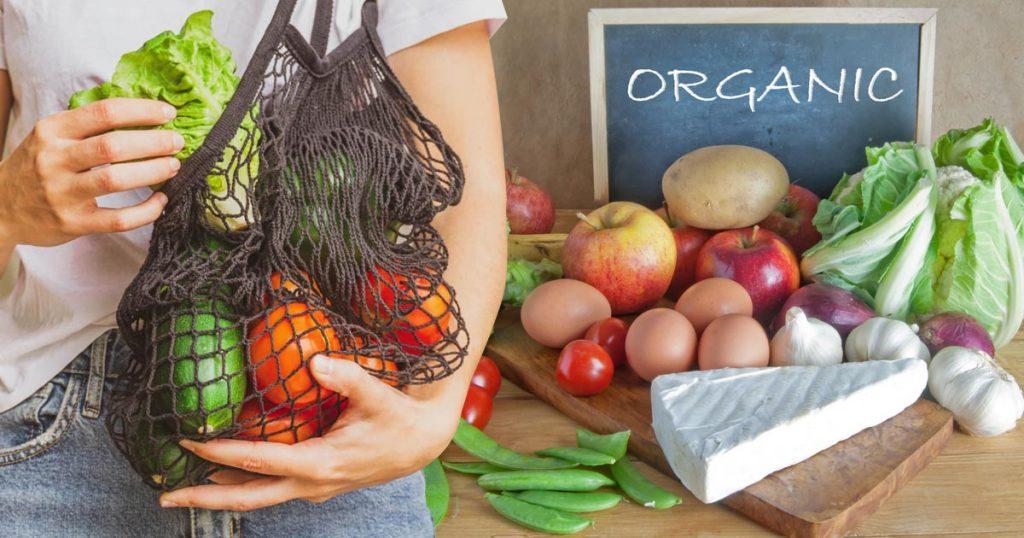Eating well isn’t just about how much food you eat; it’s also about eating the right kinds of food. This is important for every diet and shouldn’t be overlooked. Many people think organic food is the best choice because it uses natural farming methods and uses fewer chemicals. But do organic foods spoil faster? Studies, like one from the British Journal of Nutrition, suggest that organic fruits and vegetables have more antioxidants than other inorganic produce. But does this mean they don’t last as long?
What are Organic Foods?
Organic foods are grown using natural methods that protect the environment, like saving soil and water and avoiding synthetic chemicals. These foods are produced without conventional pesticides, synthetic fertilizers, genetic modification, or radiation. Animals raised organically eat organic feed, aren’t given antibiotics or growth hormones, and must have access to the outdoors.
To identify organic foods in stores, look for the USDA Organic label. There are different labels:
- 100-Percent Organic: Products made entirely of organic ingredients.
- Organic: Products with at least 95% organic ingredients.
- Made with Organic Ingredients: Products with at least 70% organic ingredients.
Products with less than 70% organic ingredients can list organic items in the ingredients but can’t be labeled as organic.
Does Organic Food Go Bad Faster?
Yes, organic food often spoils faster than regular food. This happens because organic produce doesn’t have preservatives or waxes to help it last longer. Also, organic farming avoids synthetic pesticides and fertilizers, which can extend shelf life. So, while organic produce may go bad more quickly, it means you’re eating food that’s more natural.
Why Does Organic Food Go Bad Faster?
Here’s why organic food often goes bad faster than regular food:
- No Preservatives: Regular food has chemicals to keep it fresh longer. Organic food doesn’t, so it spoils quicker.
- No Wax Coatings: Regular fruits and veggies have wax to keep them moist. Organic ones don’t, so they dry out and rot faster.
- Natural Farming: Organic farms don’t use strong chemicals to keep pests and diseases away, which can make organic food spoil quicker.
- More Water Inside: Organic fruits and veggies have more water, making them mold and decay faster than regular ones.
- Not Genetically Changed: Regular food is sometimes changed to last longer. Organic isn’t, so it doesn’t stay fresh for as long.
These reasons mean that while organic food is more natural, it won’t last as long as regular food.
Is It Worth Buying Organic Produce?
Choosing to buy organic produce depends on what’s important to you. Organic food is grown without synthetic chemicals, which can be healthier and better for the environment. It often has more nutrients and tastes fresher. But it does spoil quicker and can cost more.
If you care about natural farming, helping the environment, and getting more nutrients, then organic produce is a good choice. Here are some easy tips to keep it fresh longer:
- Apples: Keep organic apples in the fridge’s crisper drawer. Store them away from other fruits to slow down spoilage.
- Leafy Greens: Wash and dry greens like spinach or kale before putting them in a breathable bag or a container with paper towels to soak up extra moisture.
- Berries: Store strawberries and blueberries unwashed in a single layer in the fridge. Wash them just before eating. You can also freeze them.
- Carrots: Cut off the greens from carrots to stop them from drying out. Put the carrots in a sealed bag or container in the fridge.
- Tomatoes: Keep tomatoes at room temperature away from sunlight. Once they ripen, move them to the fridge.
- Bananas: Separate bananas from the bunch and wrap their stems in plastic wrap. Keep them at room temperature until they are ripe, then put them in the fridge.
- Avocados: Let avocados ripen at room temperature. When ripe, store them in the fridge. You can also freeze mashed avocado.
- Bell Peppers: Store bell peppers in the fridge in a ventilated bag. Keep them dry to avoid mold.
- Cucumbers: Wrap cucumbers in a paper towel and put them in a plastic bag in the fridge.
- Herbs: Trim the stems of herbs like parsley or cilantro, place in a jar with water, cover with a plastic bag, and store in the fridge. Change the water every few days.
Benefits of Organic Food
Choosing organic food instead of inorganic food has many advantages. Organic food is grown without synthetic chemicals like pesticides and fertilizers, making it a healthier option with potentially more nutrients and fewer harmful residues. It may contain more vitamins, minerals, and antioxidants, which can help keep you healthy.
Environmentally, organic farming is better for the planet. It promotes soil health, reduces pollution, and supports biodiversity. By using natural methods, organic farms help preserve the environment and lower their ecological footprint. They also save water, improve soil quality, and emit fewer greenhouse gases, making them more sustainable.
Taste is another benefit. Many people find that organic fruits and vegetables taste fresher and have a better flavor because they are grown naturally. Organic meat and dairy are also appreciated for their quality, as the animals are raised without growth hormones or antibiotics and are treated more humanely.
You can promote sustainable farming methods and enhance your health by selecting organic food. This choice helps protect the environment, supports small farmers, and ensures that you are eating food that is both nutritious and delicious.
